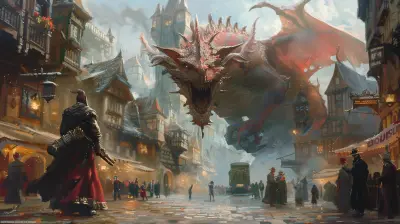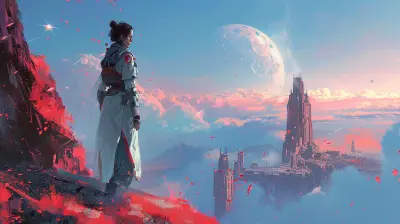The Role of Mods in Extending the Life and Possibilities of RPGs
5 July 2025
If you’ve ever played an RPG (role-playing game) long enough to know every hidden chest, dialogue option, and plot twist, you’ve probably reached that point: the dreaded burnout. That moment when the excitement dims, and you think, “Well, I guess that’s it.” But what if I told you the story doesn’t have to end there? Enter mods, the magical tools that breathe new life into your favorite RPGs and keep the adventure rolling. Mods aren’t just tiny tweaks—they’re game-changers (literally).
In this post, we’ll dive into why mods are such an essential part of RPGs, extend the lifespan of these games, and unlock endless possibilities for players. So, grab your potions and gear up; this is going to be a fun ride!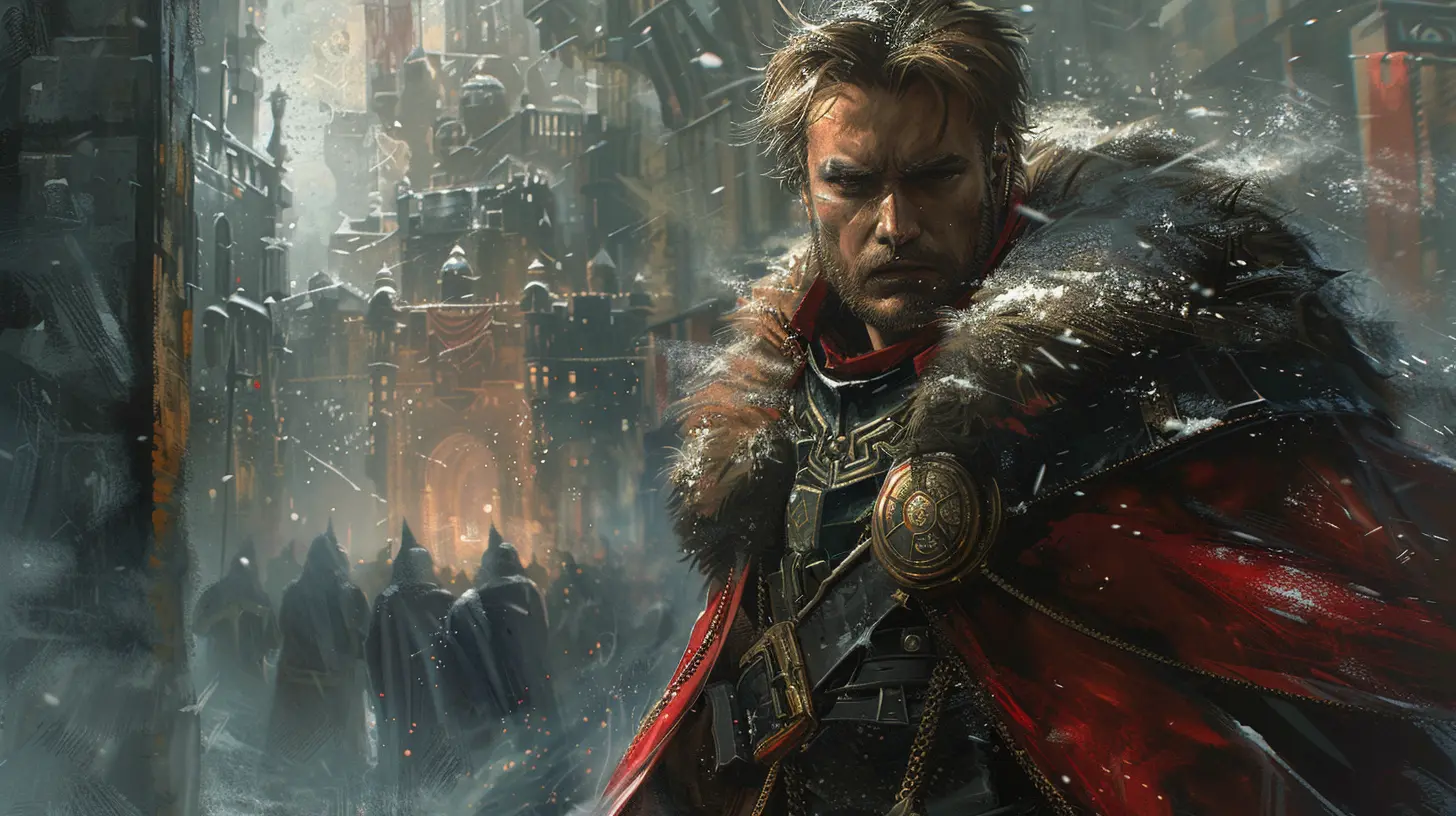
What Are Mods, and Why Do Gamers Love Them?
Let’s start with the basics. Mods (short for modifications) are user-created content that alters or enhances a game. They can range from simple texture upgrades to complete game overhauls. Think of them as the secret sauce that spices up your gaming experience. For RPGs, mods are the ultimate toolkit, allowing players to tweak mechanics, visuals, storylines, and even the fundamental rules of the game.Why are mods so dang popular? Because they put the power in the players’ hands. You’re no longer confined by what the developers envisioned—you get to make the game your own. Imagine slapping on a new paint job on your car, upgrading the engine, and suddenly feeling like you’ve just bought a brand-new ride. That’s what mods do for RPGs.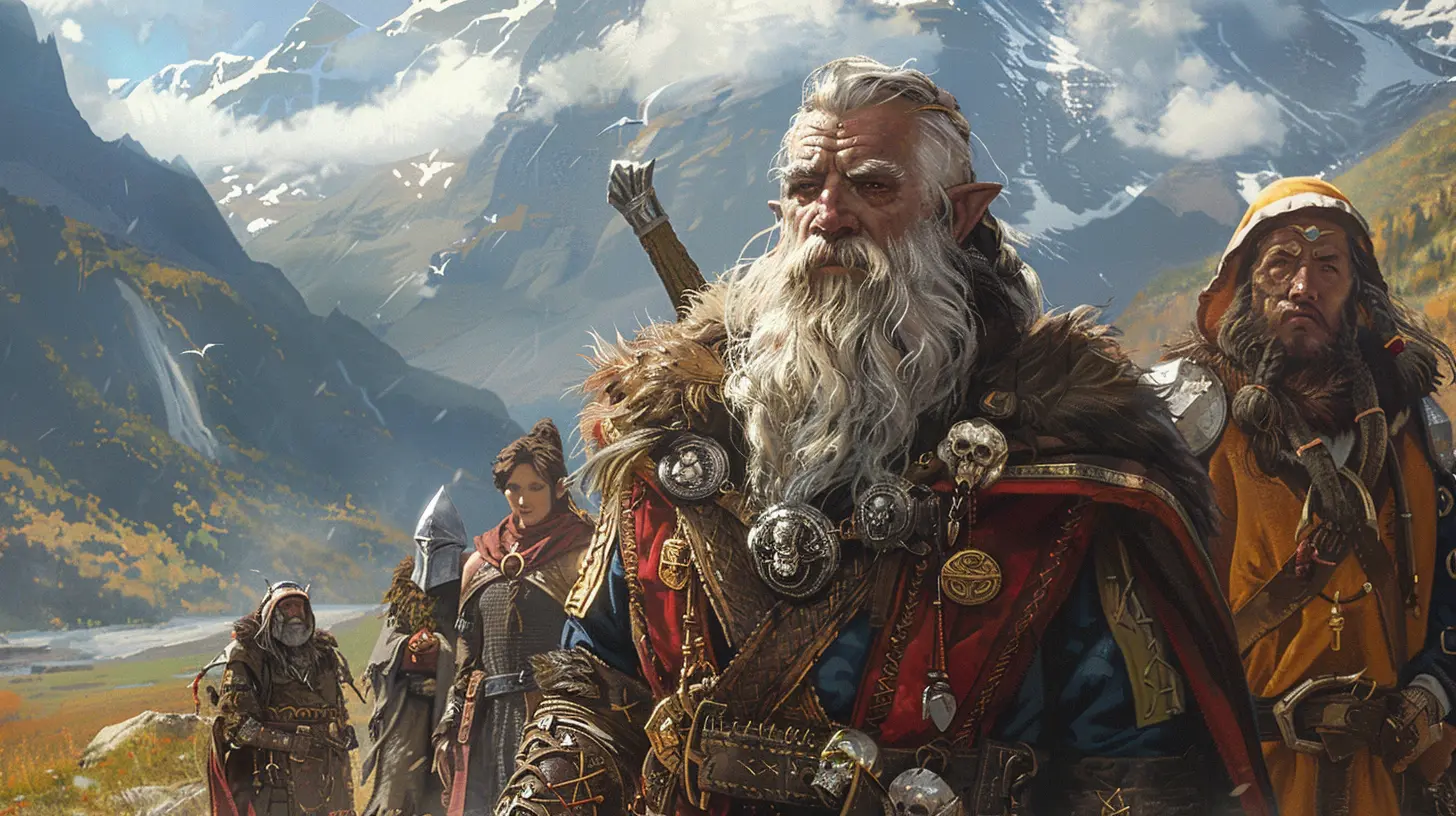
Extending the Shelf Life of RPGs
Without a doubt, mods are the fountain of youth for RPGs. Like a favorite pair of sneakers that keeps getting resoled, mods help games stay relevant years, sometimes decades, after their release. Let’s break down how and why this works.1. Adding New Content
Sometimes, no matter how massive an RPG’s world feels, you eventually run out of meaningful things to do. Mods swoop in to save the day by adding fresh content—new quests, dungeons, characters, and even entire map expansions. Games like Skyrim and Fallout: New Vegas have endless mods that add rich, story-driven missions, making it feel like you’re playing an unofficial sequel.For example, the Enderal mod for Skyrim isn’t just a quest add-on—it’s a total conversion mod that introduces an entirely new world, lore, and story. It’s like getting a whole new game for free. Who wouldn’t want that?
2. Fixing Issues and Improving Quality
Let’s face it, even the best RPGs are often riddled with bugs or less-than-ideal systems. Ever rage-quit after being stuck on a broken quest or dealing with a clunky inventory system? Mods come to the rescue. Unofficial patches and quality-of-life mods improve gameplay, sometimes even outshining developer updates.Take The Witcher 3, for example. While the game itself is phenomenal, mods like “Friendly HUD” or “AutoLoot” streamline gameplay in ways that make you wonder why they weren’t included in the base game.
3. Enhancing Graphics and Performance
Graphics can age like fine wine—or like bad leftovers. Many older RPGs show their age when it comes to visuals. Modders step in with high-resolution texture packs, lighting overhauls, and performance optimizations. Mods can transform a dated game into something that looks stunning on modern hardware.For instance, Morrowind, a game released in 2002, can be modded to look like it belongs in 2023. The Morrowind Graphics and Sound Overhaul package is a fan-favorite, and it’s a testament to how mods keep older titles alive and kicking.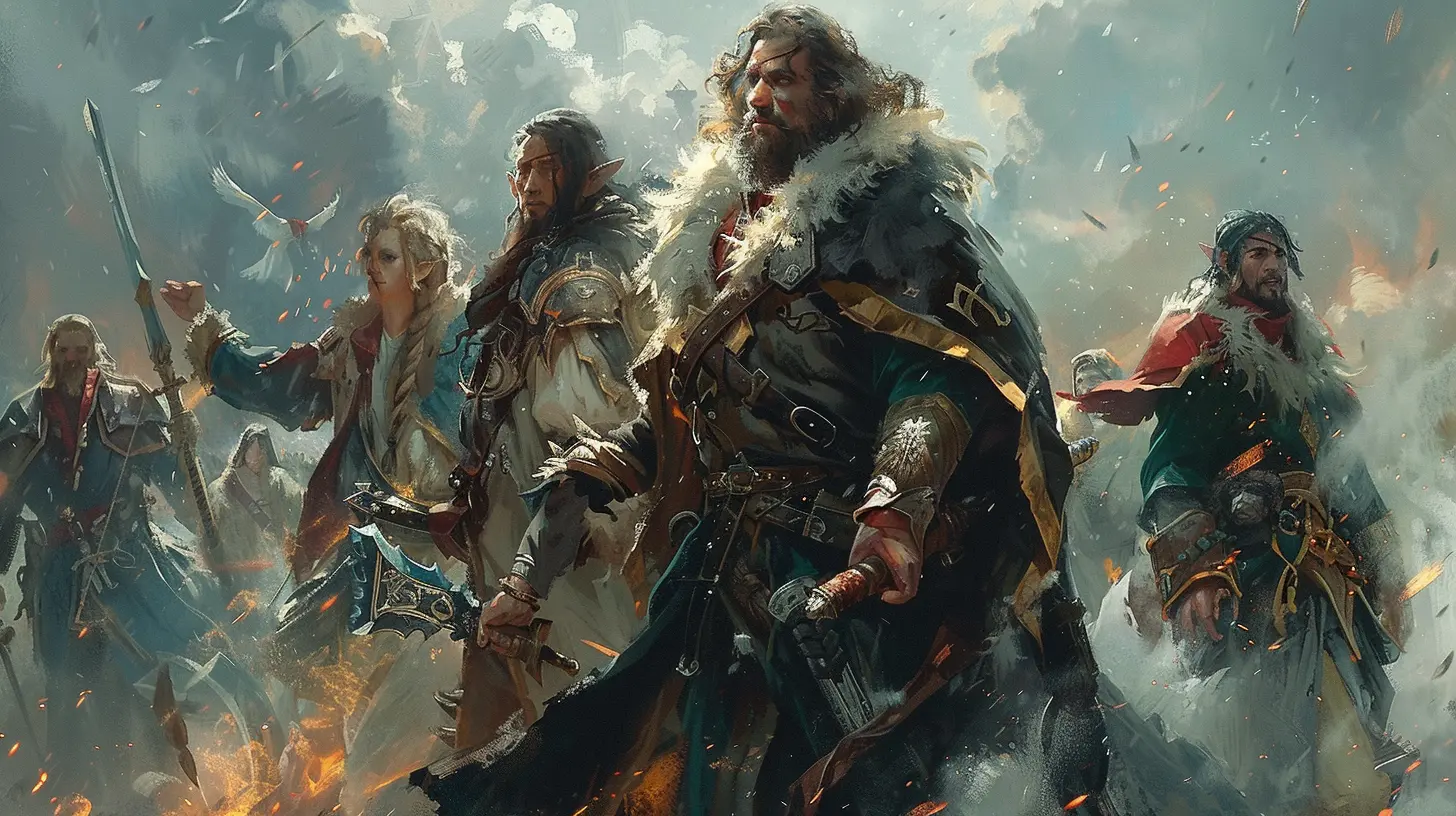
Pushing the Boundaries of Creativity
Mods aren’t just about fixing, tweaking, or enhancing—they’re also about creativity. Gamers are a passionate and imaginative bunch, and mods reflect that. Some mods go so far beyond the original game’s vision that they feel like playable art projects.1. New Gameplay Mechanics
Ever thought your RPG could use more challenge? Or maybe a completely different way to play? Mods let you shake things up. For example, Skyrim fans have created survival mods that turn the game into a hardcore wilderness simulator, where you have to eat, drink, and manage body heat to survive. It’s a totally different vibe from the vanilla game, and that’s the beauty of it.2. Crossover Madness
Who says you can’t bring your favorite characters from one universe into another? Mods make this dream a reality. Want to play as Geralt from The Witcher in Skyrim or have Cloud from Final Fantasy VII show up in Dark Souls? Modders have got you covered.3. Total Game Overhauls
Then there are total conversion mods—the pièce de résistance of RPG modding. These mods completely transform a game, creating something entirely new on an existing framework. Think of it as renovating a house while keeping the foundation intact. Games like Fallout: New Vegas have total conversion mods that turn the wasteland into settings ranging from medieval worlds to full-blown science fiction adventures.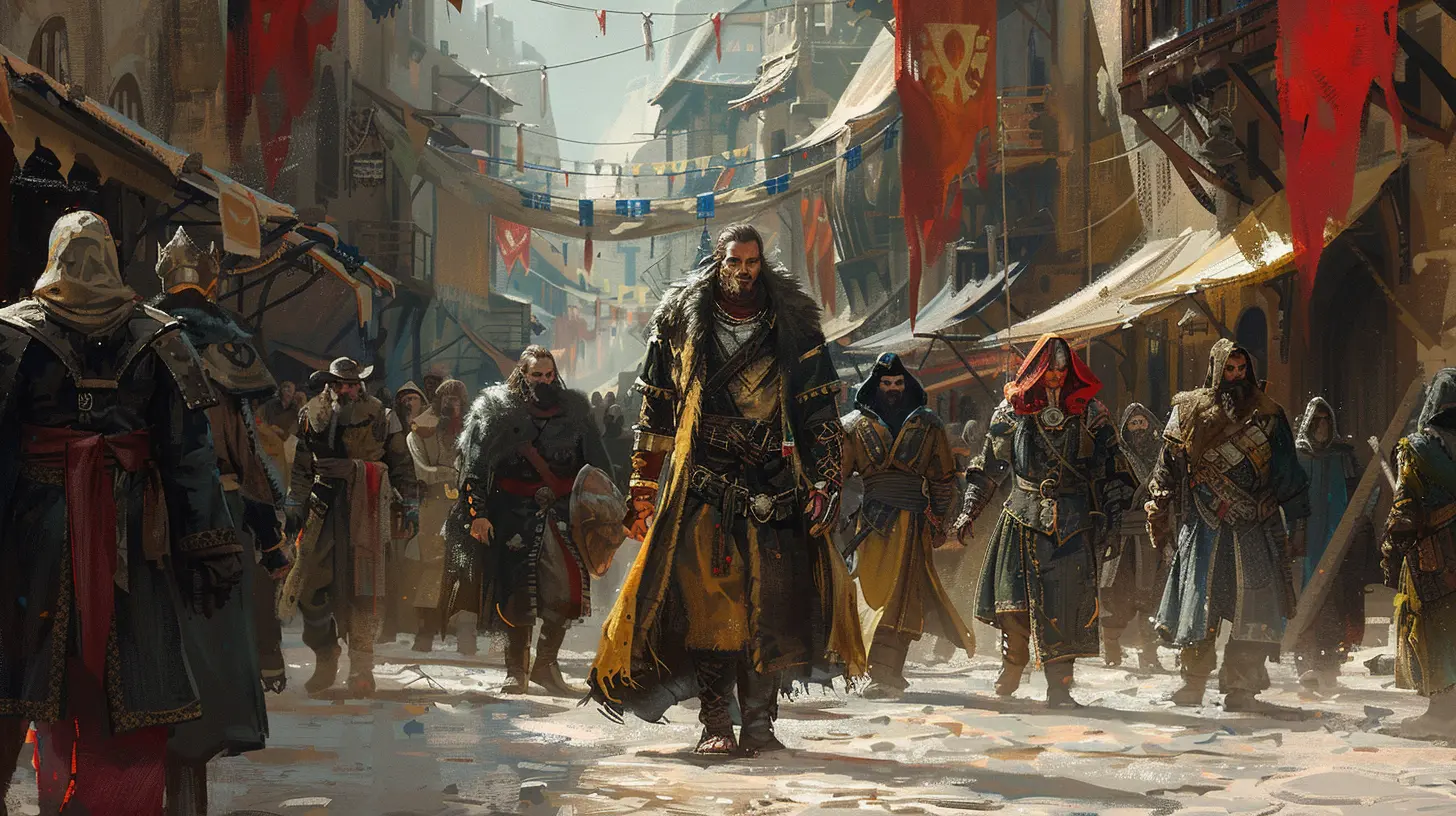
Community and Collaboration: The Heart of Modding
Mods don’t just extend games; they create communities. Modding isn’t a one-person job—it’s collaborative and thrives on shared passion. Players discuss ideas, modders tackle challenges, and everyone benefits from the final product. Many modders say they’ve learned valuable skills—like coding, 3D modeling, and writing—just by working on mods.Online platforms like Nexus Mods, Steam Workshop, and ModDB are hubs for modding communities. They’re like bustling marketplaces where creators and players come together to share, critique, and improve each other’s work. It’s this sense of community that keeps modding alive and well.
The Challenges of Modding
Of course, modding isn’t all sunshine and rainbows. It comes with its own set of challenges. Mods can sometimes break your game, especially if compatibility issues arise between different mods. It’s like trying to plug too many gadgets into one power strip—eventually, something’s gonna short out.Then there’s the matter of legality. Not all developers look kindly on mods, especially if they affect the game’s revenue stream or intellectual property. Some games don’t officially support modding, making it an uphill battle for modders to work their magic.
Despite these hurdles, the enthusiasm within the modding community often overpowers the setbacks. Where there’s a will, there’s a way.
Why Mods Are Here to Stay
Mods aren’t just a passing fad—they’re part of gaming culture now. They empower players to take control, extend the life of their favorite titles, and experience games in ways they never thought possible. For RPGs, which inherently thrive on player immersion and creativity, mods are the perfect match.Whether you’re adding a few quality-of-life upgrades or diving into a total conversion project, mods keep the magic alive. They’re a testament to the endless possibilities of gaming and the creativity of its community. So next time you boot up your favorite RPG, don’t just play it as-is—see what the modding world has to offer. Chances are, you’re in for a surprise.
all images in this post were generated using AI tools
Category:
Role Playing GamesAuthor:

Emery Larsen
Discussion
rate this article
2 comments
Siena McQuaid
Mods: because sometimes RPGs need a little magical fairy dust!
October 20, 2025 at 5:13 PM

Emery Larsen
Absolutely! Mods can add that enchanting touch, enhancing gameplay and creativity in RPGs.
Nadia McLaurin
Oh sure, because what every RPG really needed was a mod that turns dragons into dancing llamas! Who knew extending gameplay meant adding a little whimsy? Forget epic quests; let’s just frolic in pixelated fields with our new furry friends!
July 12, 2025 at 4:15 PM

Emery Larsen
Absolutely! Mods like that add humor and creativity, showing how diverse player experiences can be. They enhance the fun and keep the community engaged!
